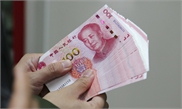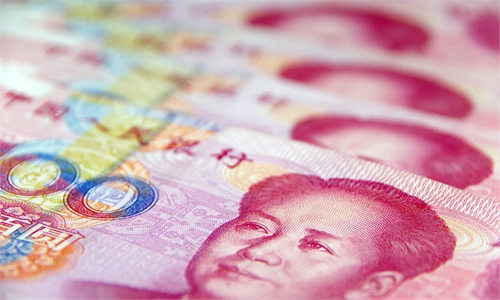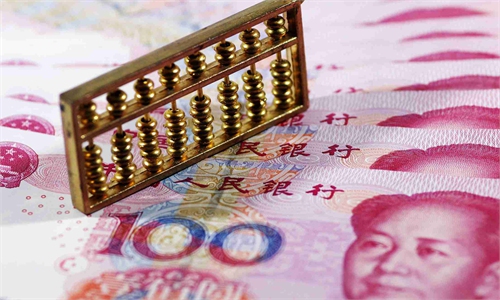
Illustration: Chen Xia/Global Times
Despite external uncertainty and Moody's downgrade warning, China may get a window of opportunity to further internationalize its sovereign bonds. In a notice posted on its website, China's Ministry of Finance said it will issue yuan-denominated treasury bonds worth a total of 10 billion yuan ($1.39 billion) on Tuesday in the Hong Kong Special Administrative Region (HKSAR).
The issuance can enrich yuan-denominated securities in the offshore market, pushing forward the internationalization of the yuan and helping its exchange rate maintain broad stability. More importantly, it will improve the influence of China's treasury bonds in the international arena.
US Treasury bonds are seen globally as the world's favorite safe haven asset, but a potential US debt crisis - a fear that has made US Treasury debt a bit less attractive - is a real concern. A large portion of US Treasury bonds are owned by foreign buyers.
As more countries reduce their holdings of US Treasury bonds, it's understandable that global investors will look for new assets for their portfolios. China's treasury bonds are widely believed to be risk-free because their repayment is backed by the credit of the Chinese government, making them a good choice for global investors.
Although the US dollar will remain the most frequently used currency in the foreseeable future, a global trend toward de-dollarization has already begun. There is an appropriate window of opportunity to push forward the internationalization of the yuan and yuan-denominated treasury bonds.
The HKSAR is an important financing center for yuan-denominated securities, hosting the largest offshore yuan bond market. Since 2009, the scale of yuan-denominated treasury bonds issued in the HKSAR has grown quickly, from about 6 billion yuan per year at the initial stage to about 20 billion yuan in recent years.
With the approval of China's State Council, the Ministry of Finance increased the issuance of yuan-denominated sovereign bonds in the HKSAR to 50 billion yuan this year, according to the Xinhua News Agency.
In recent months, foreign net purchases of Chinese bonds have increased significantly. As reported by Xinhua on Monday, overseas institutions have made net purchases of Chinese bonds for nine consecutive months, with cumulative net purchases of nearly 1 trillion yuan since the beginning this year.
China's economy grew at a faster-than-expected clip in the third quarter, suggesting the recent flurry of policy measures is helping to bolster the economic recovery. It would be financially more attractive for overseas institutions to invest in Chinese securities.
It's surprising that US rating agency Moody's downgraded its outlook on China's credit rating to negative on December 5, at a time when Chinese bonds have become more attractive to global investors.
China's Ministry of Finance responded with restraint, expressing "disappointment" but refraining from using stronger language. However, some Chinese analysts disdained Moody's downgrade warning, saying that Moody's lacks a basic understanding of the Chinese economy.
We cannot expect Western rating agencies to promote the internationalization of the yuan and yuan-denominated securities. A big part of the problem is a lack of understanding between China and the West of each other's perspective, and the lack of understanding of each other's actions. However, in the current feverish geopolitical climate, that may have been magnified and exaggerated by external forces.
The future of China's international financing will be determined by various factors. The impact of the Moody's downgrade warning is limited. However, as the pace of yuan internationalization accelerates, China's interactions with international rating agencies may become more frequent.
Comments by these agencies, whether right or wrong, may have a greater impact on the offshore market for yuan-denominated securities. We need to handle different voices properly and buffer the negative effects on the market.
It's normal that different voices are being uttered and heard. We do not need to be overly fixated on Moody's downgrade warning. China has seen a continuous increase in foreign net purchases of yuan-denominated bonds this year. In this context, it is believed the internationalization of the yuan and China's treasury bonds will continue to be advanced in 2024.
The author is a reporter with the Global Times. bizopinion@globaltimes.com.cn



